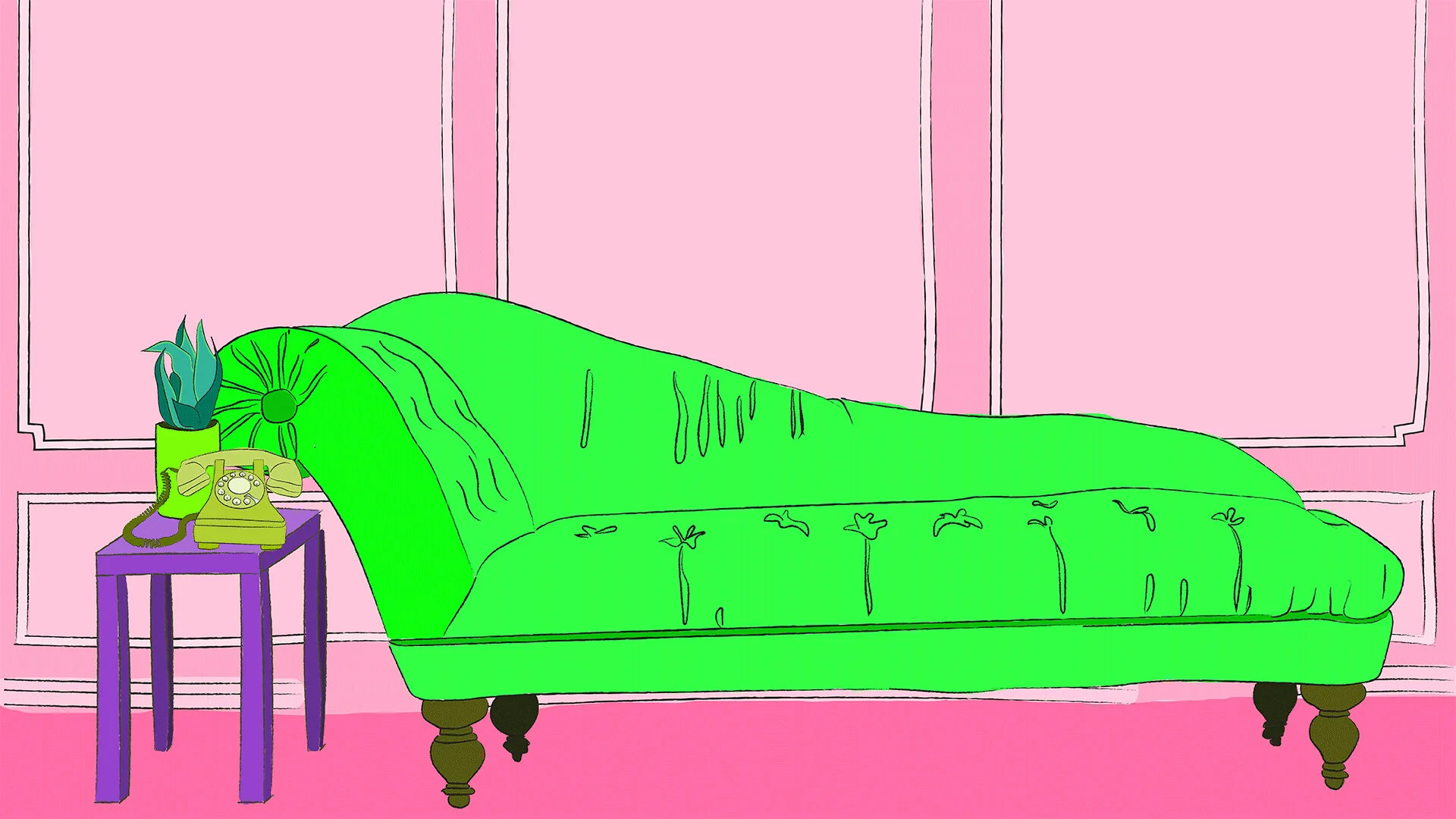My Top Take Aways From Therapy
I recorded a podcast yesterday all about my experience of post natal depression and the effect that had on my relationship and the subsequent therapy that we underwent as a couple to try and fix it. One of the questions I was asked was, ‘What tools did I learn in therapy?’ It’s an important question because it implicitly tackles the myth that therapy will ‘fix’ your marriage. Only you can work on your marriage but what therapy does is equip you with the tools to navigate those tricky bits without screaming, shouting, hurling insults, drowning in resentment and punching walls.
So, in no particular order, I thought I’d share my very top takeaways from therapy.
LEARN TO KEEP IN MIND AND BE KEPT IN MIND
One of the sorest spots in our relationship was the overwhelming resentment that came from the idea that, frankly, he didn’t give a shit about me and vice versa. It’s hard to feel loved when it seems he’d rather hang out with the kids than you, when there’s no (or very little) communication when he’s not physically with you. And, on the flip side, when your wife doesn’t hear your concerns, or minimises them, about things like money or when she prioritises her own schedule over yours. Often these feelings of resentment aren’t down to one big act of treachery or betrayal but instead, lots and lots of tiny emotional indiscretions that make you think, “Did they even consider me?”
Learning to keep your partner in mind and to expect to be kept in mind is one of the key things we’ve learned. It sounds so simple, but it made it easy for us to recognise what we’d been missing. So, when I suddenly changed plans that meant I’d be home a lot later than I initially thought I would be able to stop and think, “Have I kept Jimmy in mind?” Sometimes, that meant turning down the exciting invitation I’d received last minute, but mostly it meant calling him and saying, “I’ve been invited to this thing and I’m so sorry it’s not what we discussed but if I only stay for an hour do you mind if I go?” He felt kept in mind. Of course, if he said, “I’d rather you didn’t because…insert valid reason here” then I had to learn to accept that.
It also gave us neutral language to help the other understand when we were feeling unhappy. Being able to say, “I didn’t feel kept in mind when you did that,” is much more helpful than, “You clearly don’t give a shit about me.”
SOMETIMES IT IS BETTER TO GO TO BED ON A FIGHT
I genuinely think that ‘don’t go to bed on an argument’ is one of the biggest myths I’ve come across. My husband is one of those people that, when the fight got too intense, he would just leave. Right in the middle of a sentence, he would just got to the front door and walk out. I was one of those people that would say, “Don’t you dare leave. If you leave, don’t bother coming back.” It wasn’t a healthy dynamic.
The argument that you shouldn’t go to bed on an argument somehow sounds like a good one but frankly, there have been times when we’ve stayed up till 4am fighting it out, finally crawling into bed exhausted, spent, broken only to wake up feeling worse, tired, fractious and before we know it, still raging with each other. That isn't constructive. Sometimes an argument or a situation needs space. I had to learn that just because he was walking away, didn’t mean he was walking away from me, he was walking away from the situation. Once I understood that, I could let him go knowing that he needed the time and taking the time myself to cool down.
When it comes to going to bed on a fight now, I’d rather we both took a break to get some sleep because the other adage is true, “It’ll all feel better in the morning,” and even if it’s not better, you’ll be calmer and that’s the best place to start a discussion.
YOUR CHILDHOOD EXPERIENCE OF PARENTING PLAYS A HUGE PART
You simply can’t ignore your experience of parenting as a child. Good or bad, it will affect the way you parent, the way you respond and the way you handle situations. Your own parents are the blueprint for how you parent. There’s no reason to suggest that you have to parent that way, but unless you recognise that, in some instances, you may simply be replicating behaviour habitually rather than consciously, then there’s a chance that you might not be getting it all quite right.
My husband and I parent very differently, and despite thinking I was turning up for couple’s therapy to work on our marriage, we have inevitably tapped into both mine and my husband’s experience of parenting from when we were small. If you’d asked me before therapy what my childhood was like, I would have said it was very happy, idyllic almost. I’d still argue it was very happy but of course, when I dig deeper, there were elements about it that deeply affected me, that created insecurities, anxieties and worries. My parents were great parents but no one gets it right so realising that some of my ‘beliefs’ were actually just inherited habits was key to me learning to parent in a way that I felt comfortable with.
NURTURING YOUR RELATIONSHIP SEPARATELY FROM THE KIDS IS ESSENTIAL
This, I knew, was always important. This was something that my husband struggled to see and, funnily enough, it comes back to his childhood. He again would say he had a happy childhood, but it would be fair to say that in his parents he didn’t get a blueprint for a healthy, loving relationship. They focussed on the kids and all he saw were two parents rather than one couple. Other things tied in to this to make it hard for him to leave the kids but he committed to working on it. In September we went to New York for his 40th and that was the first time in 6 years that we’d been away together without the kids for more than one night…and we’d only done that once. From the minute we left the house to go to the airport, the atmosphere changed. The vibe was different. It was just us and because he’d committed to it despite his anxiety, I felt kept in mind. I felt like he was really trying and we ended up having the best 4 days together in a very, very long time.
RELATIONSHIPS DON’T JUST FAIL BECAUSE OF A HUGE BETRAYAL
When we think about relationships collapsing, we normally think of affairs, or huge financial problems or some cataclysmic event that renders the marriage futile. The reality is that most relationships fail through a constant daily barrage of emotional indiscretions that slowly chip away at the foundations of a partnership. Familiarity may or may not breed contempt but it certainly breeds complacency and when you complacency sets in, you forget to keep your partner in mind, you forget to try, you forget to communicate, you forget to be grateful and thankful for the small stuff. Instead, we start to compare to what we think other relationships look like and feel like and before you know it, you’re drowning in a sea of resentment and unhappiness. You’ll find yourself talking endlessly about how hard your marriage is and how unhappy you are to everyone else, but will never be talking about it with your partner. When that happens, you know there’s a communication problem and when that happens, it’s almost impossible to make it work. The good news is that you can recover good communication skills, you can fix that, if you’re willing to try.
DON’T UNDERESTIMATE THE EFFECT OF KIDS ON A RELATIONSHIP
I love my kids intensely but man, their arrival nearly screwed everything up in my marriage. It wasn’t their fault, of course. It was 100% our fault but in some ways we were set up to fail. Society tells us that the 2.4 family is the dream, the image of success. They tell us that the day we birth our children will be the best day of our lives. That parenting is the most natural thing in the world and that you’ll never feel love like it. Well, I’m calling bullshit on all this because it’s unhelpful, doesn’t paint a realistic picture, makes us all feel like failures and, most importantly when it comes to your relationship, leaves us woefully unprepared for the nuclear explosion that is kids.
As soon as those kids land, whether it was the easiest birth in the world or not, whether you had PND or not, whether you had one baby or three…the dynamic of your relationship changes instantly and enormously. No one tells you about that. Everyone tells you how to avoid mastitis, how to sleep train, what kind of nappies to use. They tell you about the sleep deprivation and the hormones and the leaky bladders but no one sits you down before you give birth and says, “This is going to be hard on your relationship. Be aware, be open, and keep talking to each other.” But I’m saying it to you now: having a kid or two or however many you decide to hoof out is hard on your relationship. Really hard. It may not seem it and you may think you’re doing just fine and maybe you are but the only way you’ll know for sure is if you keep checking in. Keep a separate space for the ‘couple’ to exist beyond and away from the ‘parents’. Don’t be blindsided, as we were, by the cracks that having kids created in our relationship. Don’t let those cracks grow, as we did, to huge gaping wounds with you both standing on opposite sides. It’s possible to come back from it but it’s best to avoid it in the first place, if you can.

